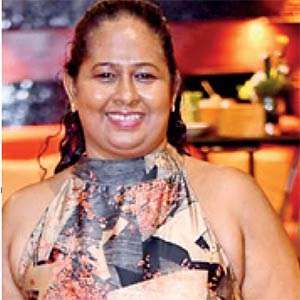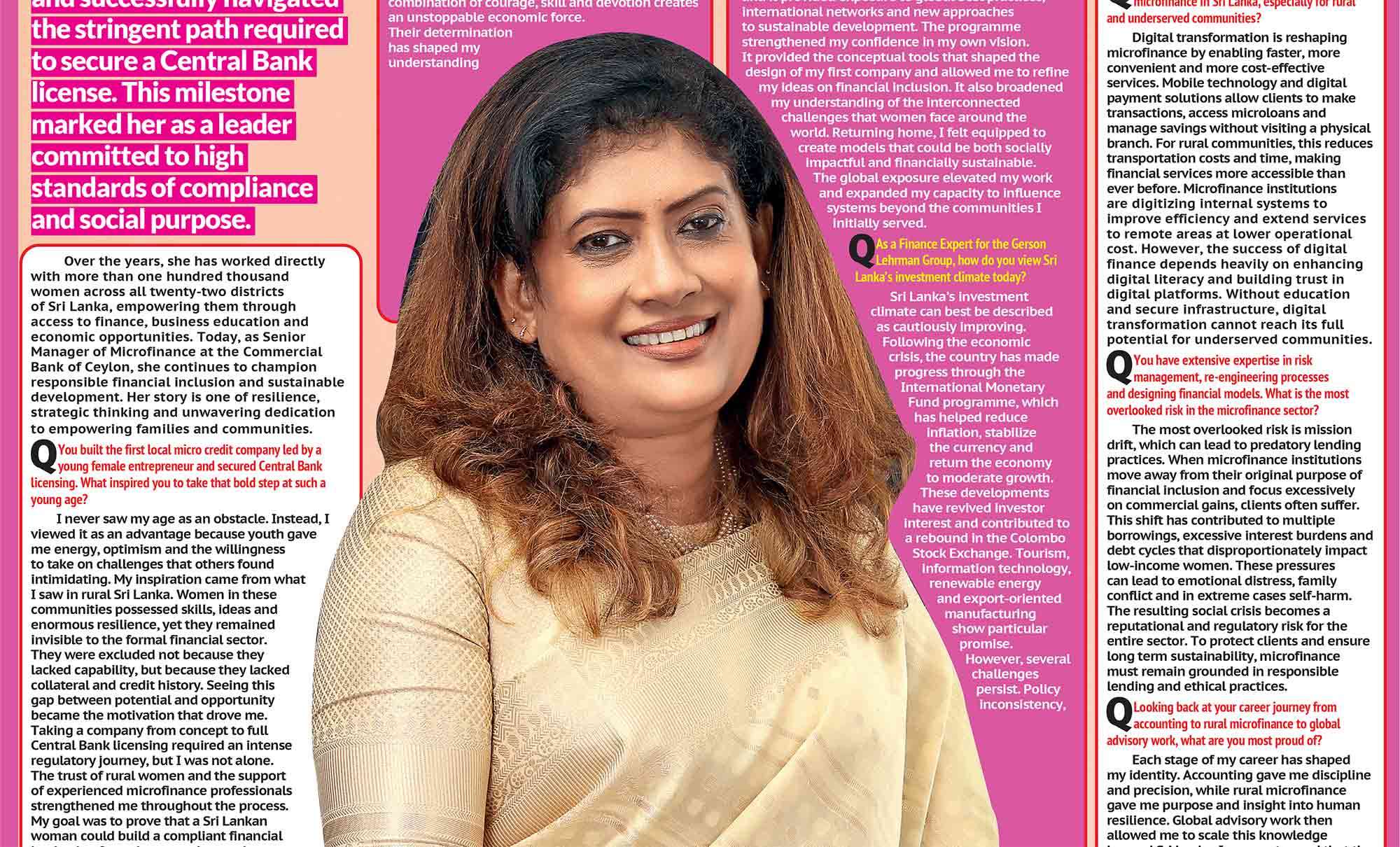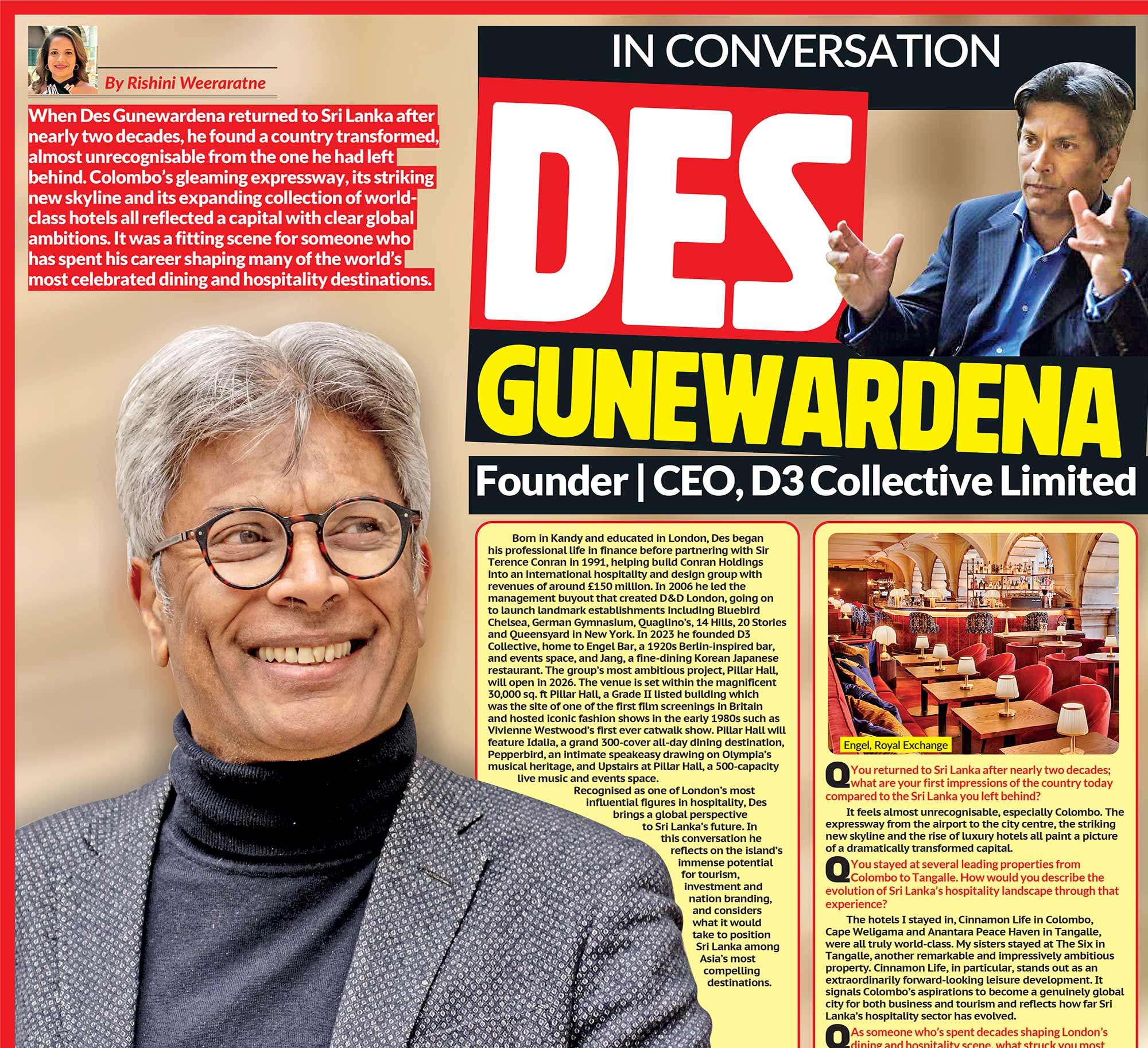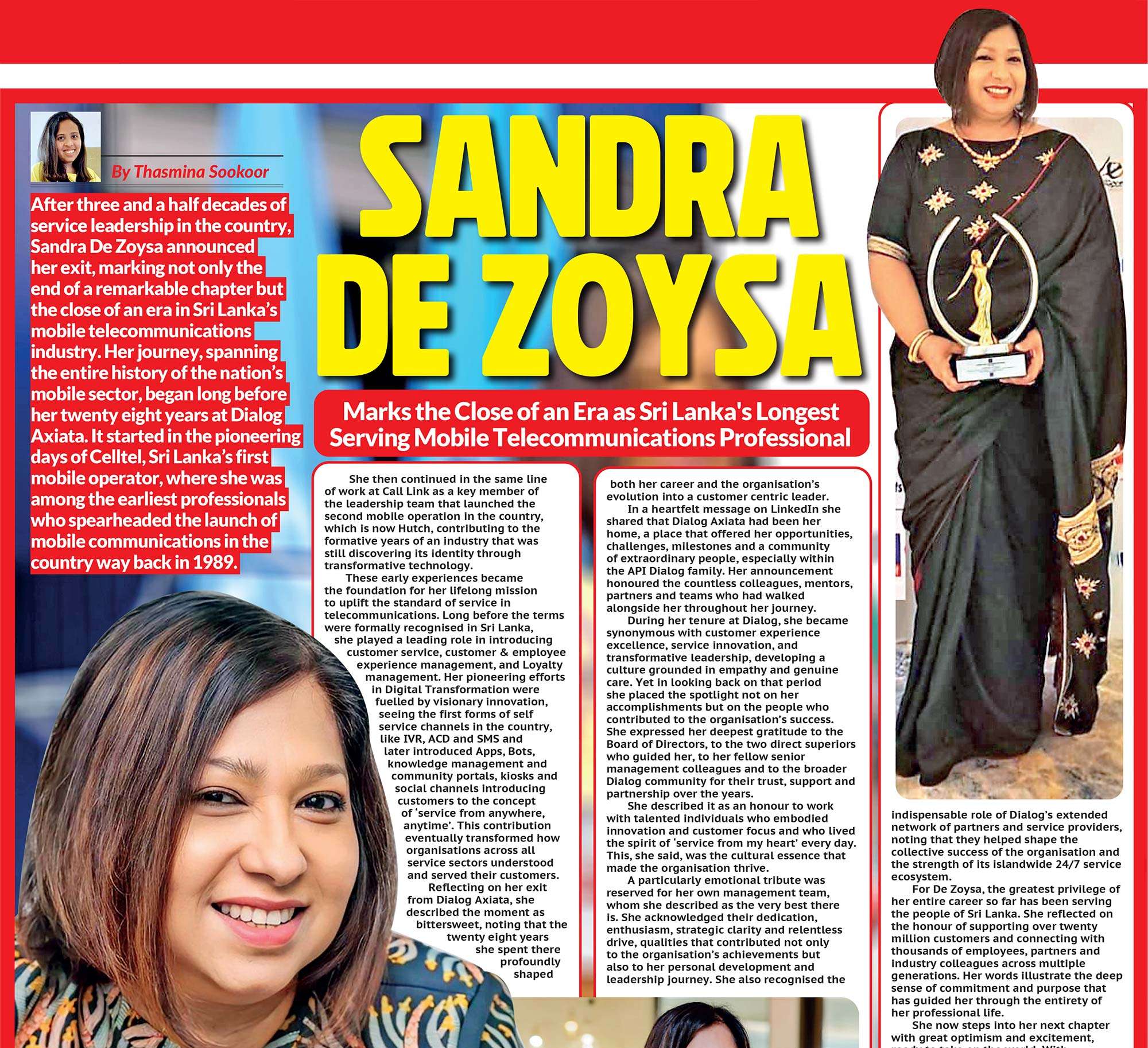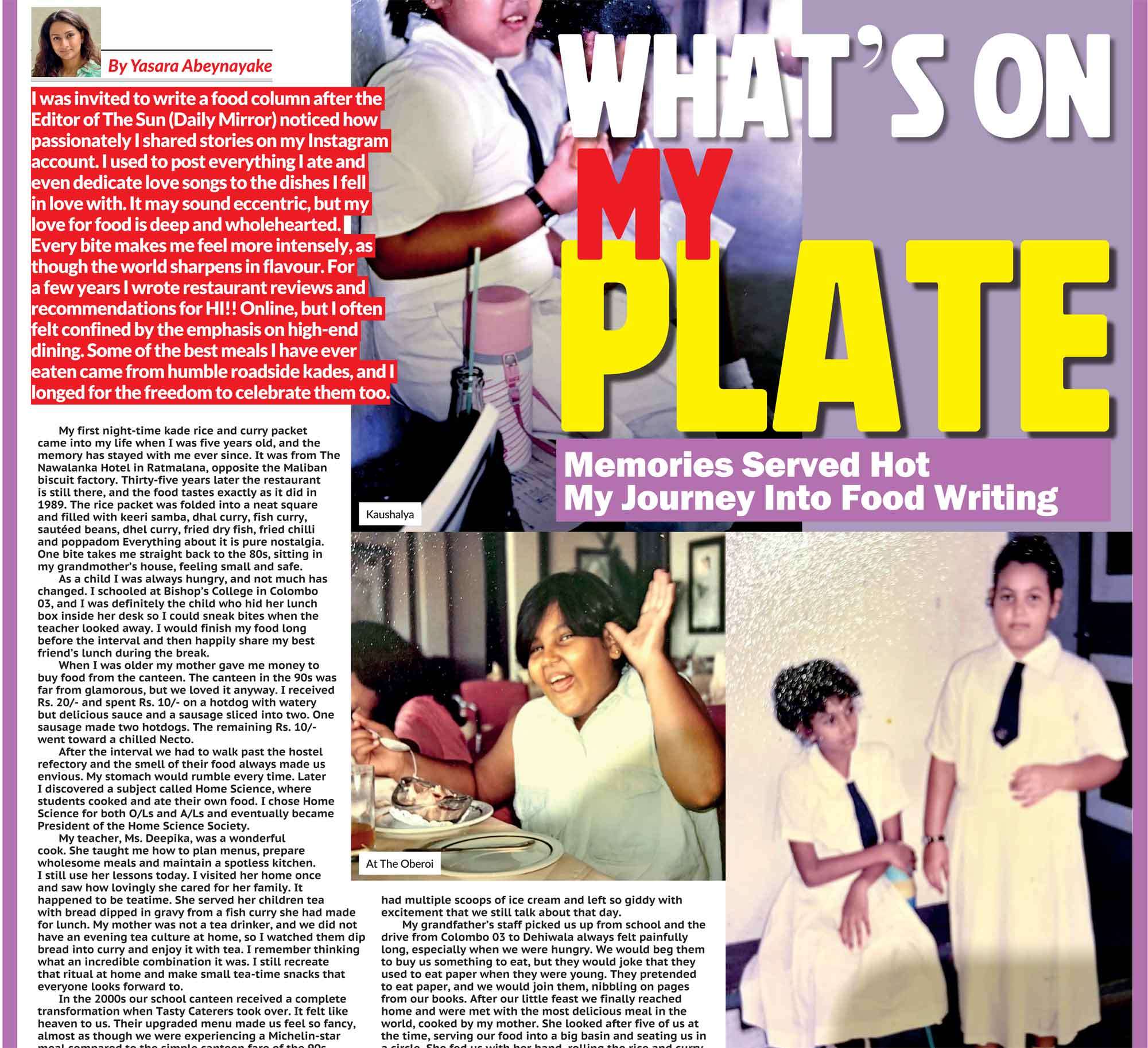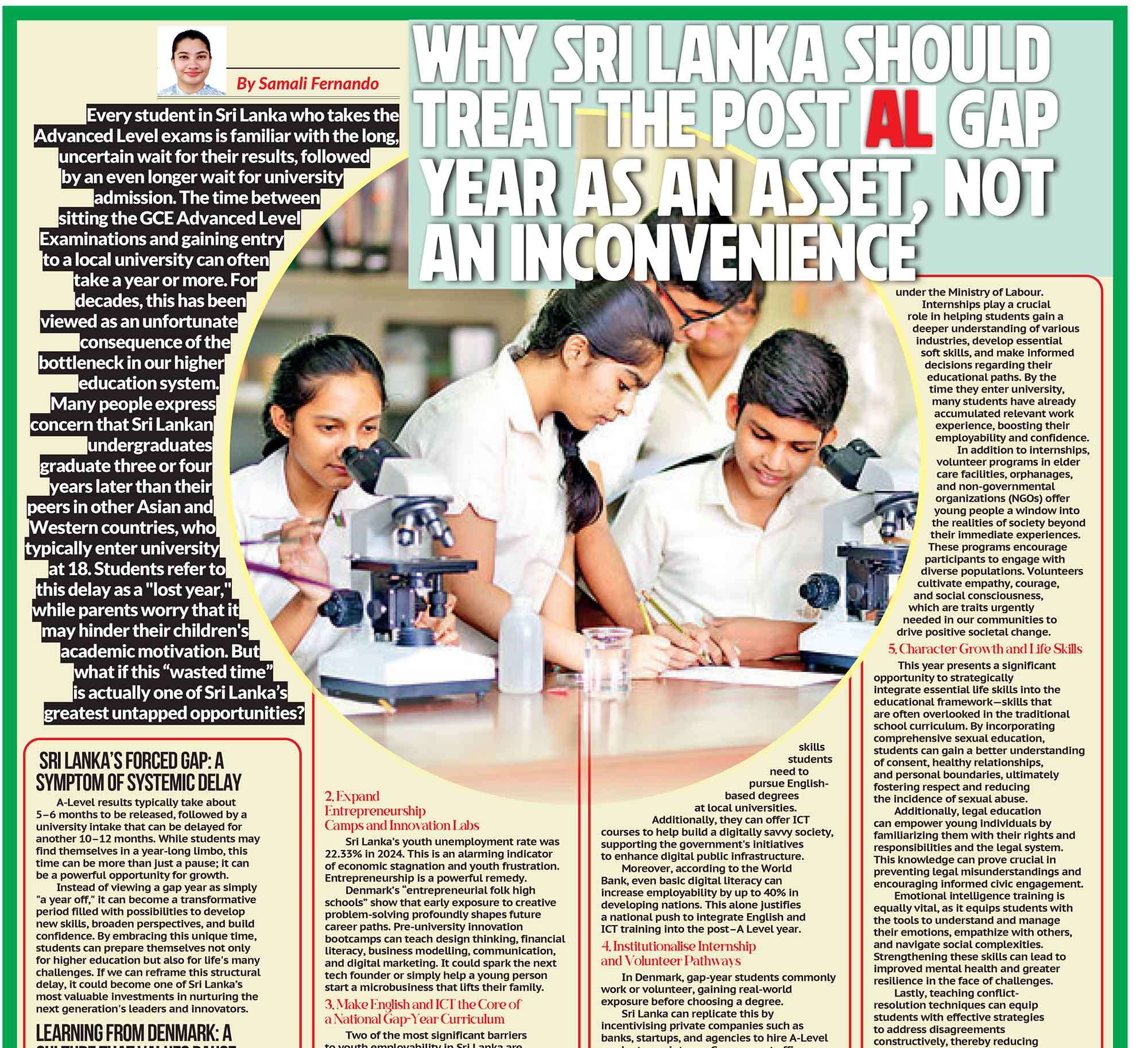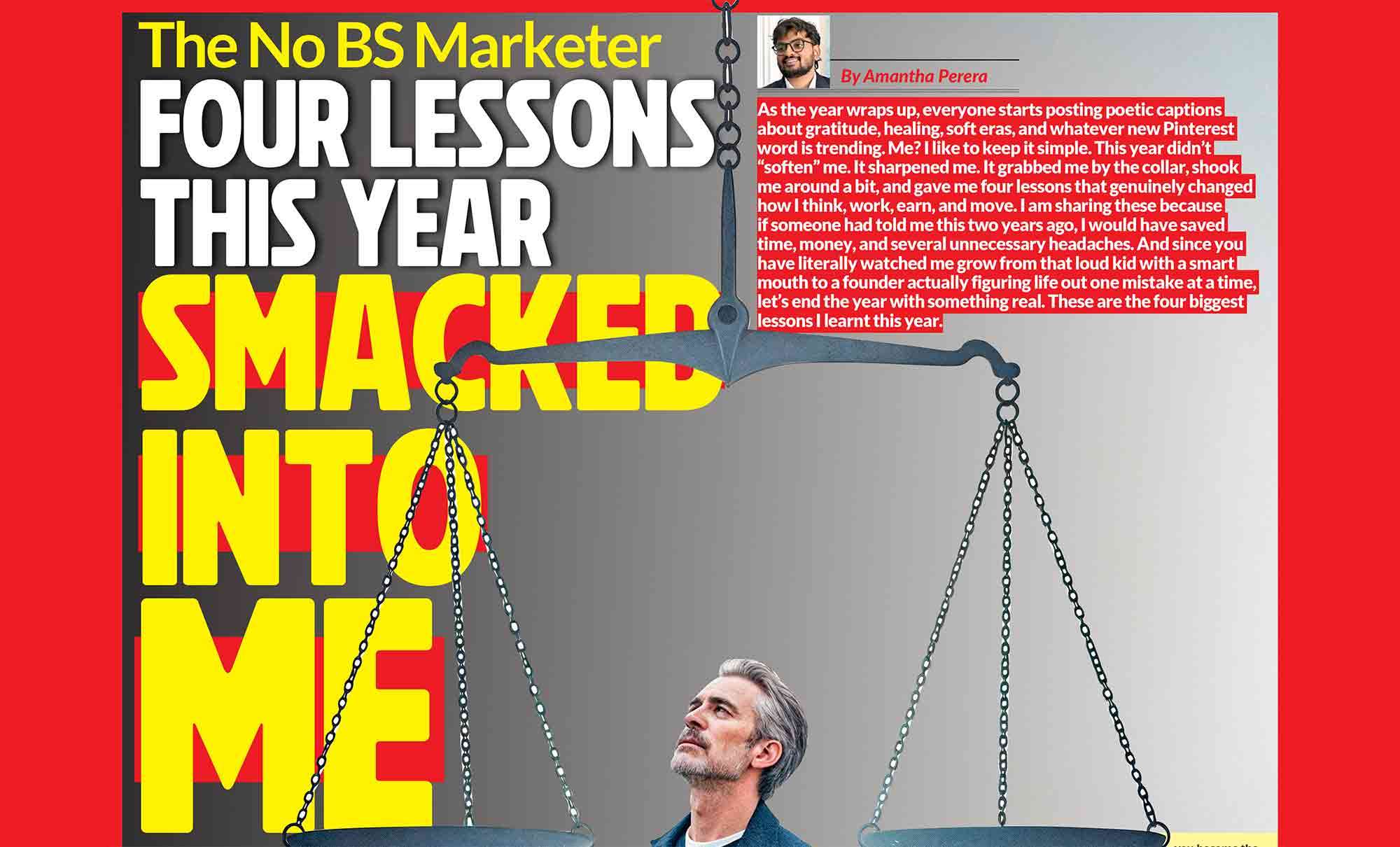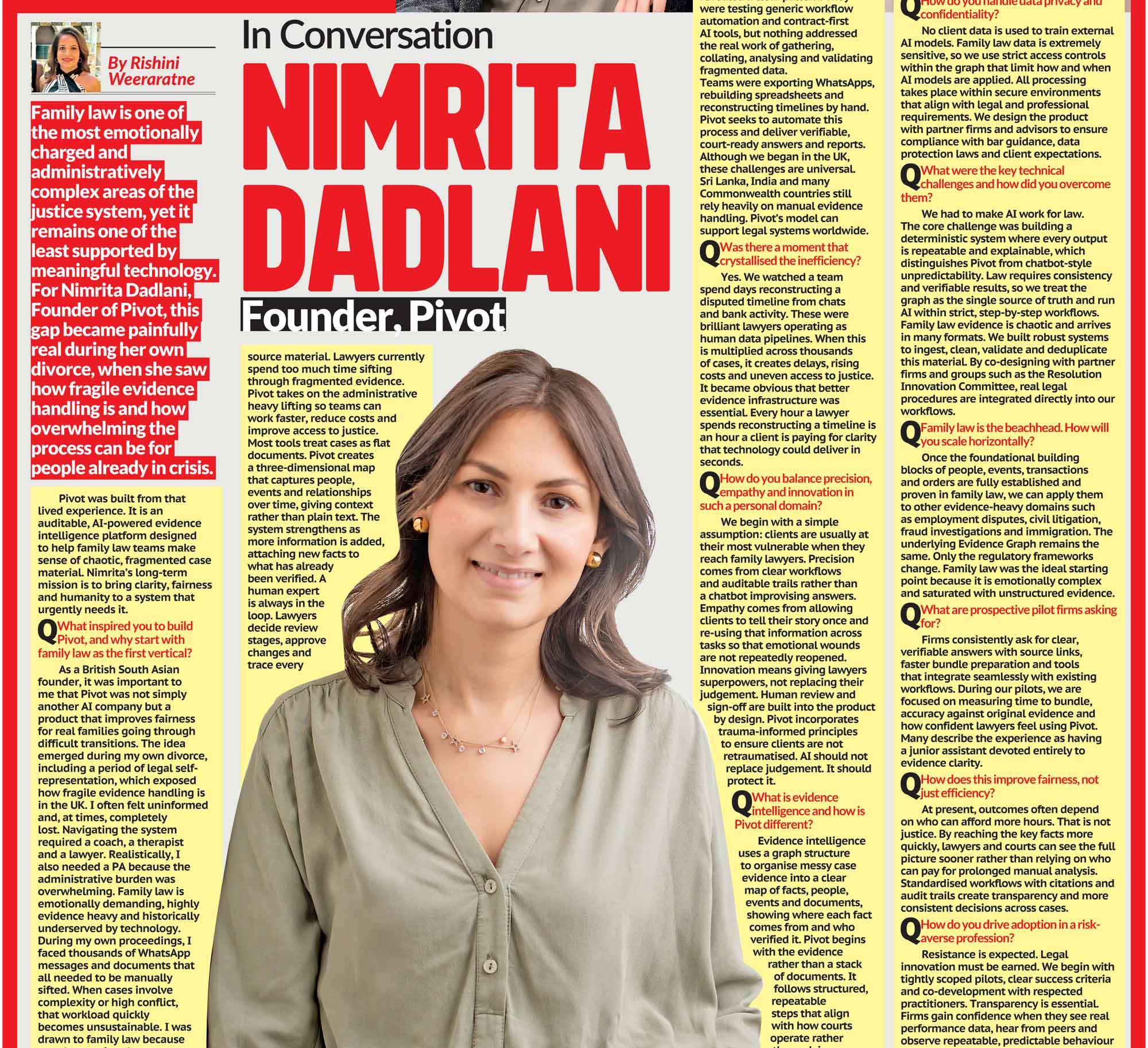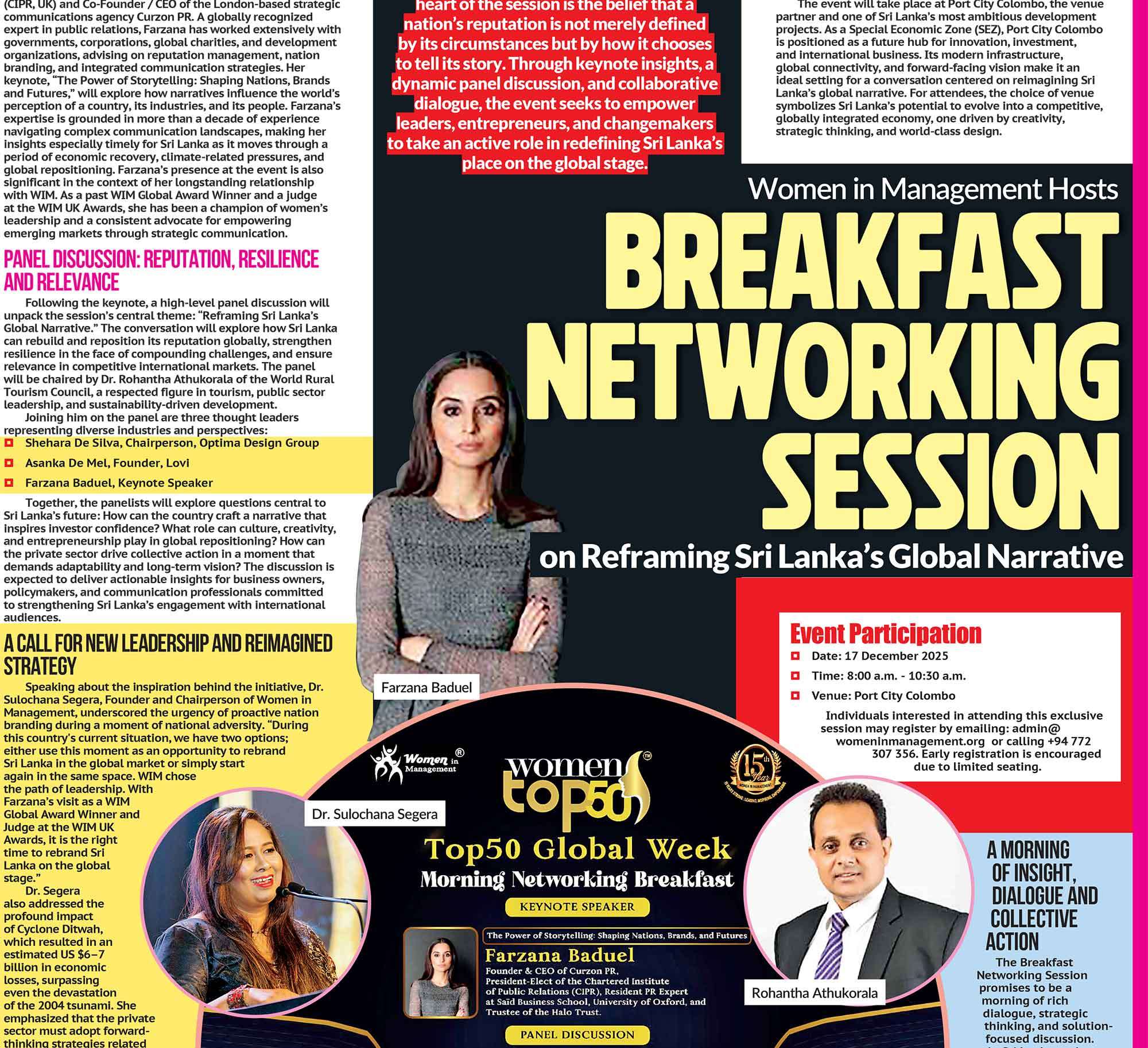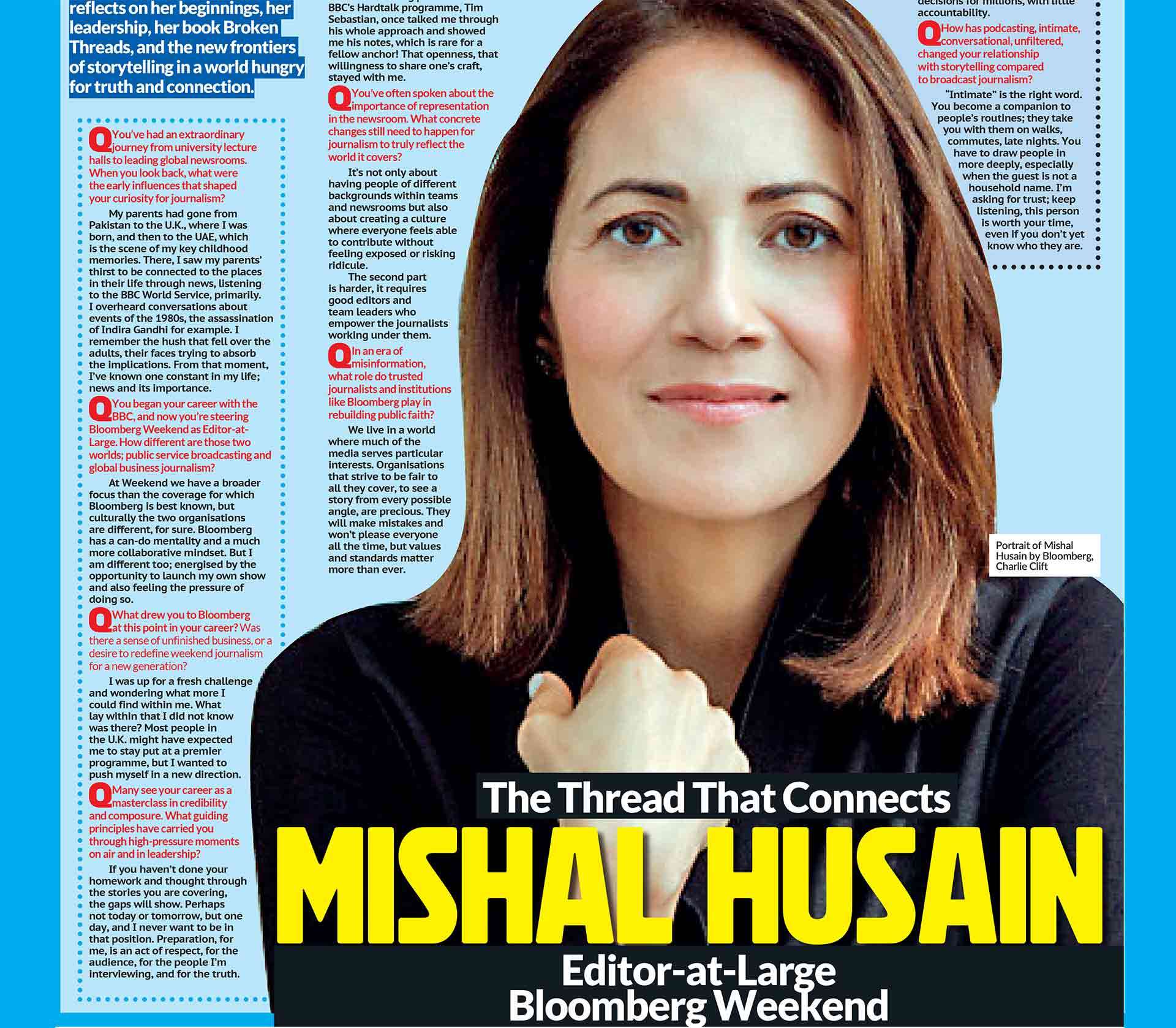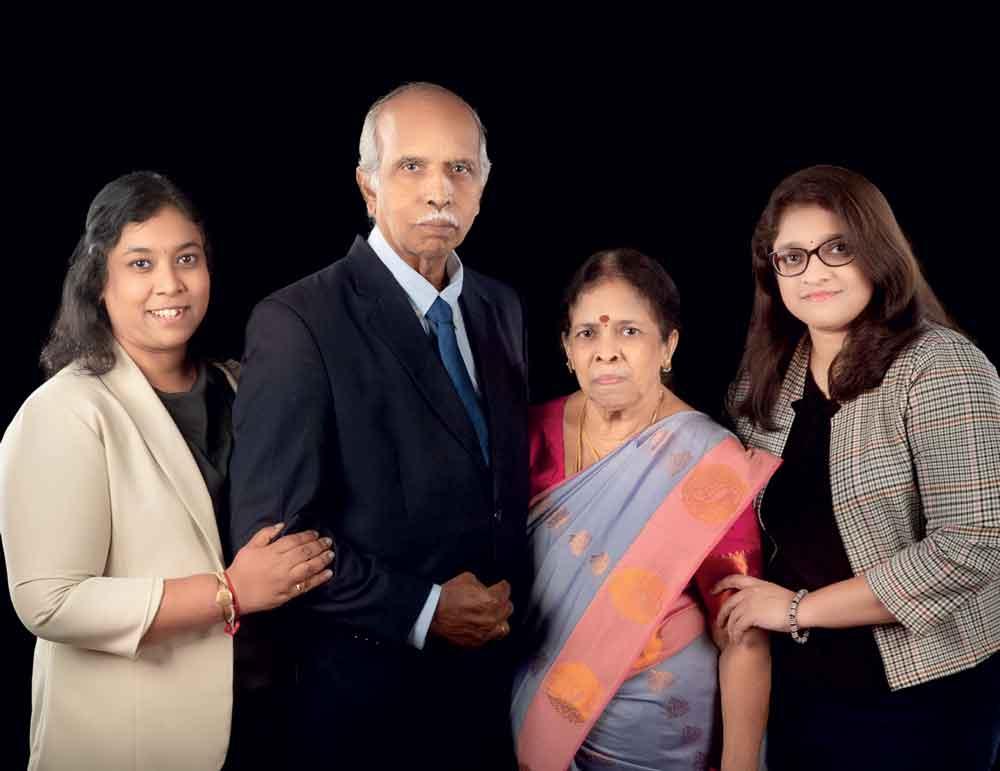
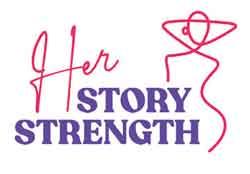 In a world where pixels dominate screens and digital noise often drowns out the tangible, the art of print still holds its quiet power, a permanence inked in purpose, patience, and precision. Few embody this spirit more vividly than Arunnia Vimalendran, Director of Business Operations at Unie Arts (Pvt) Ltd, one of Sri Lanka’s most respected family-run printing houses. A second-generation printer, engineer, and marketer, Arunnia brings both logic and creativity to the press floor, balancing heritage with innovation. Guided by the lessons of her father, P. Vimalendran, a stalwart of the Sri Lankan print industry, and driven by a personal mission to redefine what leadership in print looks like for women, she is transforming legacy into inspiration. In this candid conversation, she reflects on resilience, reinvention, and the beauty of leaving a mark that endures beyond time, proving that, indeed, every drop of ink tells a story.
In a world where pixels dominate screens and digital noise often drowns out the tangible, the art of print still holds its quiet power, a permanence inked in purpose, patience, and precision. Few embody this spirit more vividly than Arunnia Vimalendran, Director of Business Operations at Unie Arts (Pvt) Ltd, one of Sri Lanka’s most respected family-run printing houses. A second-generation printer, engineer, and marketer, Arunnia brings both logic and creativity to the press floor, balancing heritage with innovation. Guided by the lessons of her father, P. Vimalendran, a stalwart of the Sri Lankan print industry, and driven by a personal mission to redefine what leadership in print looks like for women, she is transforming legacy into inspiration. In this candid conversation, she reflects on resilience, reinvention, and the beauty of leaving a mark that endures beyond time, proving that, indeed, every drop of ink tells a story.
Q You describe your journey in print as one rooted in purpose and legacy. What inspired you most about your father’s work and how did it shape your decision to step into this industry?
My father, P. Vimalendran, has always been my greatest inspiration. I grew up watching him pour his heart into every sheet of paper that came off the presses. For him, printing was never just a business, it was a craft, a science, and a service. The hum of the machines, the smell of fresh ink, and his relentless dedication became the rhythm of my childhood. As a second-generation printer, stepping into this industry was never merely about inheriting a business; it was about embracing a legacy built on hard work, integrity, and excellence. Even as a child, I was fascinated by the journey of a printed product, how books, packaging, labels, and invitations came alive. With my engineering background, I saw a unique opportunity to innovate, optimize, and leave my mark. Women remain underrepresented in printing, which made it a challenge I was determined to embrace. I stepped onto the press floor boldly, not just to continue a family legacy, but to redefine it, proving that courage, skill, and vision have no gender. As I often remind myself and others, “Legacy is not what we inherit, it is what we boldly choose to create and leave behind.” For me, every drop of ink now carries not just my father’s dedication, but my own courage and determination to inspire the next generation of women in print.
Q Growing up as one of three daughters, how did your family react when you decided to enter a field traditionally dominated by men and machines?
There was curiosity, and yes, some doubt, after all, printing has long been seen as a man’s domain. In a world where sons are often expected to carry forward a legacy, we stood out, three daughters taking charge of an offset printing house. At first, many questioned whether we could handle it. But my father never did. He believed in us completely. From childhood, my family never imposed barriers based on gender. My Spiritual Guru, His Holiness Bangaru Adigalar Amma, always says that “All women have power within themselves, and that power gives them the ability to conquer and achieve everything.” I truly believe this inner power helps us push forward.
My alma mater, Methodist College, Colombo, also instilled the same values, courage, discipline, and leadership. As sisters, we divided responsibilities according to our strengths: my elder sister manages administration, my younger sister leads creative design, and I took on the technical and operational side because I wanted to show that bold decisions define leaders, not comfort zones. Walking onto the press floor for the first time, the machines were massive, metallic, and intimidating. But I reminded myself: “Machines don’t define strength, mindset does.” Over time, I mastered breakdowns, understood complex printing mechanics, and learned to lead with both head and heart. Together, we’ve built a partnership grounded in trust, respect, and a shared vision, proving that women can thrive and lead even in traditionally male-dominated industries.
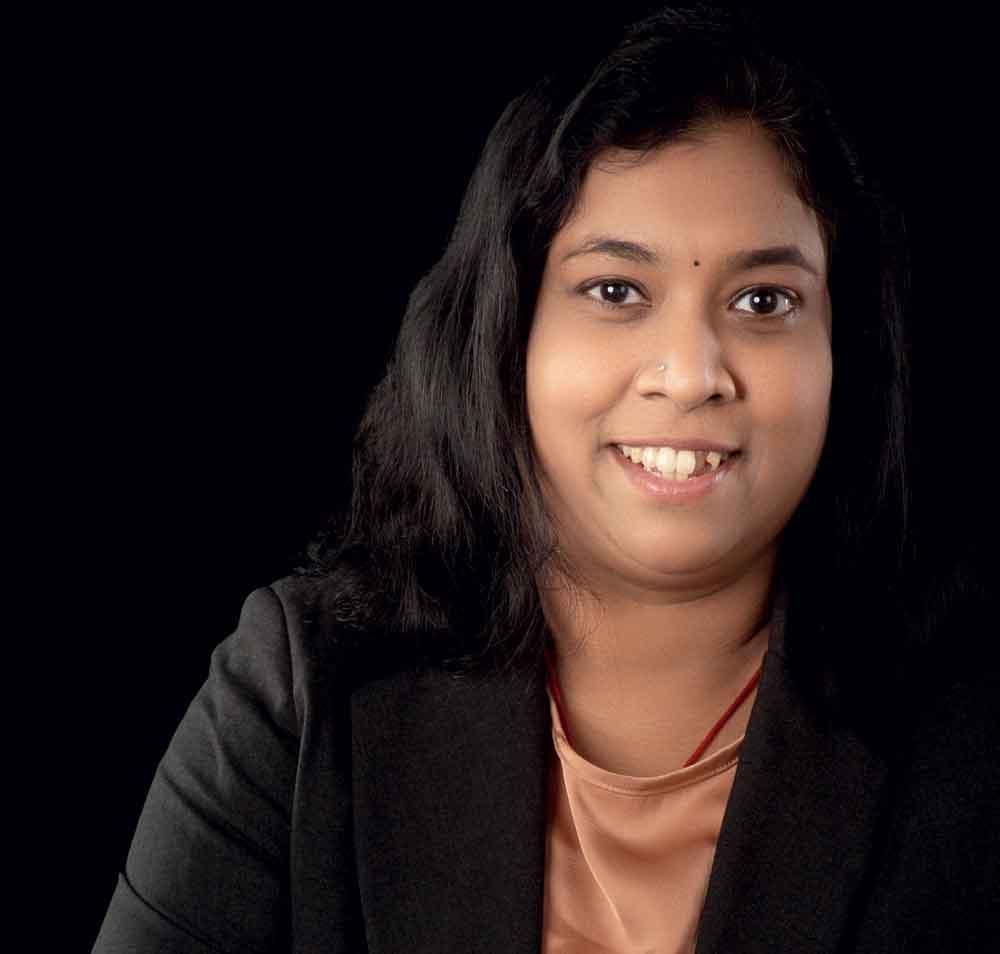
Q What was the most valuable lesson you learned from observing your father run a printing press?
The greatest lesson I learned from my father was resilience. Machines can break down, ink can run dry, deadlines can shift, yet the press must keep running. He taught me patience, precision, and pride in craftsmanship, but above all, he showed me that people are the true pillars of any business, customers, suppliers, and employees. Without respect, trust, and collaboration with them, no machine or process can succeed. He often said, “A true printer doesn’t just print paper, he prints purpose.” That philosophy guides me every day. His 55 years of experience taught me lessons no print school ever could: to troubleshoot creatively, to deliver on time, and to maintain uncompromising quality. Together, his lessons and my engineering training became my compass, guiding every decision, every challenge, and every bold step I take in leading Unie Arts forward.
Q You’ve achieved remarkable academic success, excelling both in engineering and marketing. How have these two disciplines complemented each other in your leadership at Unie Arts?
Engineering trained me to think logically and solve problems systematically. It gave me confidence to enter technical spaces, understand machinery, and make operational decisions. Marketing, meanwhile, taught me to connect ideas with emotion, to see beyond production and into purpose, perception, and people. At Unie Arts, this dual lens of logic and creativity drives our success. I can step onto the factory floor to optimize production, and in the next moment, strategize branding or packaging for a client. This balance ensures decisions are both precise and imaginative, rooted in both efficiency and empathy. Engineering gives you the tools to turn ideas into reality; marketing gives you the insight to make those ideas resonate. Together, they form a powerful toolkit for leadership, innovation, and impact.
Q Winning three gold medals for your MBA is no small feat. How did this academic journey redefine your vision for the printing business?
The MBA was not just a degree, it was a reawakening of purpose and perspective. While engineering taught me how to think, the MBA taught me why we do what we do, how to connect strategy, creativity, and human insight to drive meaningful impact. Winning three gold medals, for Best Overall Performance, Strategic Marketing Management, and Contemporary Management Thought, reaffirmed my belief that discipline, and curiosity can transform industries. It also redefined how I saw printing, not just as production, but as storytelling through form and function.
Today, I view Unie Arts as a platform where technology, creativity, and strategy converge to create lasting value for clients and communities. Above all, the MBA taught me that true leadership isn’t just about innovation; it’s about people. Relationships are the ink that bind every page of success.
Q The printing industry is often perceived as traditional and male dominated. What were the biggest challenges you faced as a woman leader in this space, and how did you overcome them?
My biggest challenge was scepticism. Many assumed a woman couldn’t understand machinery or lead a press. My response? I learned everything, from handling breakdowns to running production schedules. Skill and consistency turned doubt into respect. Society also tends to place women in “softer” roles, but I refused that narrative. I embraced technical mastery, operational leadership, and business strategy, showing that women can thrive anywhere they choose. Leadership, for me, isn’t about dominance; it’s about trust. I work alongside my team, whether on the press floor or in client meetings, proving that dedication and integrity speak louder than gender. Interestingly, the first Original Heidelberg machines were designed for women operators, proof that women have always belonged in print. In Sri Lanka, we’re still catching up, but I hope my journey encourages more women to see printing as an industry where they can build, innovate, and lead.
Q During Sri Lanka’s economic and pandemic crises, many presses closed down. What strategies helped you sustain and adapt Unie Arts during this turbulent period?
The crises tested everything, supply chains, morale, and financial stability. Many presses closed, but we chose resilience over retreat. Every decision was deliberate and measured. We avoided debt, optimized operations, and prioritized people over profits. We kept communication transparent with our employees, suppliers, and clients, maintaining trust even in uncertainty. Our philosophy was simple: if we can’t grow, we will still stand strong. By focusing on core strengths, managing costs wisely, and keeping promises, we retained our full team without layoffs, a decision that built immense loyalty and pride. The experience taught me that leadership is not only about action, but also about patience and purpose. The storm made us more disciplined, compassionate, and united, proving that sometimes the bravest thing you can do is simply keep going.
Q Looking back at your journey, from engineer to director, what would you tell your younger self who first walked into the press floor?
I’d tell her: “Walk in with courage, not comparison. You’re not here to fit in, you’re here to redefine.” The machines may seem intimidating now, but one day they’ll echo your strength. Every challenge, every smudge of ink, sleepless night, and moment of doubt, will become part of a story worth printing. Leadership isn’t inherited; it’s earned, through resilience, integrity, and compassion. Being a woman in a male-dominated industry isn’t a barrier; it’s a canvas for courage. And when the world says it’s too hard or too mechanical, smile and say, “So am I.” Because one day, those very machines will sing your story.

RAPID FIRE with Portia
- Ink or digital: What’s your heartbeat? Ink - because tangible, lasting impressions are where magic truly happens.
- Coffee or chai during late-night deadlines? Coffee.
- The one colour of ink that defines your energy? Warm Red - it symbolizes passion, courage, and boldness.
- Your leadership style in one word? Empowering. I lead by inspiring confidence and courage in others.
- A quote you’d print on every office wall? “Grab every opportunity you get, and give every chance you can, none is ever lost.”
- One woman who inspires your professional journey? Srimathi Luxmi Bangaru Adigalar from Melmaruvathur, India.
- If not printing, what would your dream career be? Program Director, Satellite Missions.
- The best advice your father ever gave you? “Lead with integrity, master the craft, and let dedication speak louder than words.”
- One thing you never compromise on at work? Quality and trust; for customers, employees, and suppliers alike.
- If your life were a magazine cover, what would the headline read? “A Woman Who Runs the Press and Breaks Barriers.”

